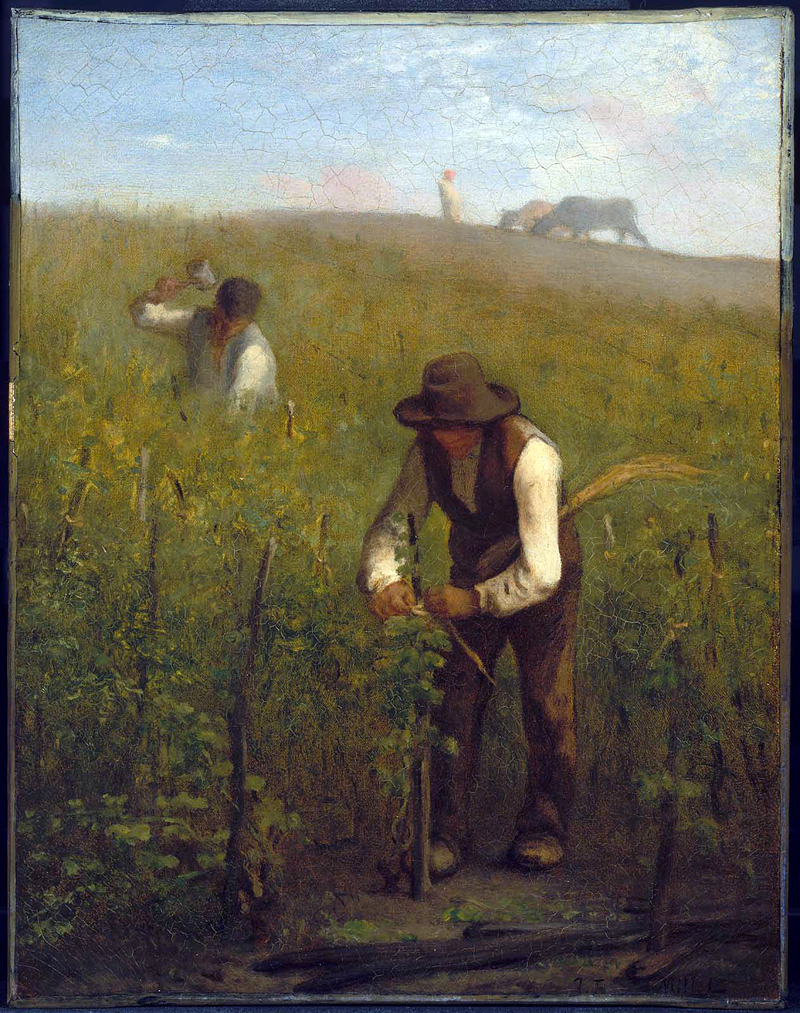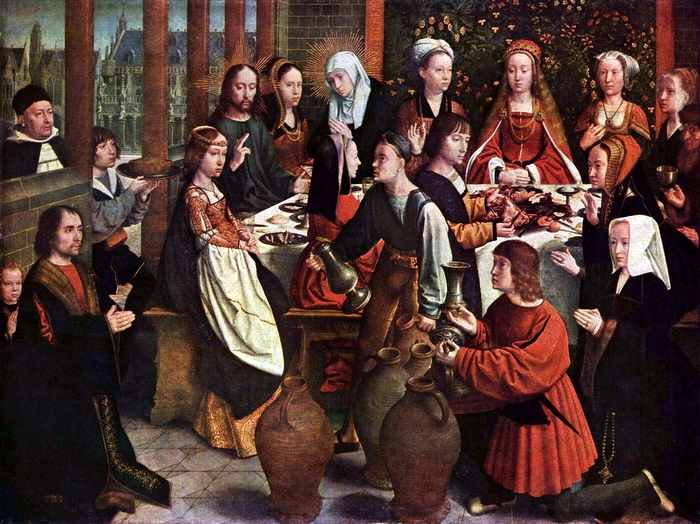 |
| João Marques de Oliveira, Waiting for the Boats |
2 Peter 3:8-15a New Revised Standard Version
8 But do not ignore this one fact, beloved, that with the Lord one day is like a thousand years, and a thousand years are like one day. 9 The Lord is not slow about his promise, as some think of slowness, but is patient with you, not wanting any to perish, but all to come to repentance. 10 But the day of the Lord will come like a thief, and then the heavens will pass away with a loud noise, and the elements will be dissolved with fire, and the earth and everything that is done on it will be disclosed.
11 Since all these things are to be dissolved in this way, what sort of persons ought you to be in leading lives of holiness and godliness, 12 waiting for and hastening the coming of the day of God, because of which the heavens will be set ablaze and dissolved, and the elements will melt with fire? 13 But, in accordance with his promise, we wait for new heavens and a new earth, where righteousness is at home.
14 Therefore, beloved, while you are waiting for these things, strive to be found by him at peace, without spot or blemish; 15 and regard the patience of our Lord as salvation.
************
They say patience is a virtue. When it comes to God’s patience it’s not only a virtue, it’s a blessing. You see God has God’s own timeline, which is different from ours. Thank the Lord for that! Humans are not very patient, especially those of us living in the modern age. We have embraced microwaves, computers, and fast food. We are also rather impatient drivers, some more so than others. Yes, and count me among them! Such is not the case when it comes to the way God works in the world. God is more tortoise than hare.
When we read the New Testament, especially the letters of Paul, we see a community that assumed that the Day of the Lord was close at hand. Paul encouraged people not to marry if they could control themselves because the days were short. As Paul put it, “the present form of this world is passing away” (1 Cor. 7:25-31). We see a similar message across the New Testament, but there is also another voice present in the text. While the Pauline letters give evidence that he believed the Parousia, the second coming, was near at hand, the letters that came later often call for patience on the part of the people. Such is the case here in 2 Peter, which suggests that it dates to a second or third generation period in church history. There is still an apocalyptic element to the message, but there’s less urgency and more caution.
We come to this reading from 2 Peter, one of only two readings from the letter stipulated by the Revised Common Lectionary on the Second Sunday of Advent. This Advent season easily gets buried in the rush to Christmas. While that rush is both understandable and very enticing, if we set aside Advent we will miss something important. We will miss the message that we live not only after the first Advent, but we live between two Advents. One has occurred with the birth of Jesus in Bethlehem, according to the Gospels of Matthew and Luke. However, the second advent is yet to come. Each year as we undertake this liturgical cycle that begins with Advent and ends with Christ the King Sunday, we’re reminded of this fact. While Paul, and even the author of 2 Peter, may have thought the second advent would have occurred already, two millennia later, we’re still living in the “between times.” For the most part, we live our daily lives as if things will go on as they have been for the foreseeable future. So, “we plow the fields and scatter the good seed on the land,” with the expectation that the harvest will come once again, just like it comes each year. Those who are prudent will plan for the future. Because we don’t know how long we’ll live, we put make plans for tomorrow. If we’re able, we put away funds for our retirement years. We may purchase extended warrantees for goods we expect to use over the long term. Experience and history suggest that this is a wise move. However, we don’t know what tomorrow will bring! So, stay alert!
Although written in the name of the Apostle Simeon Peter (2 Pet. 1:1), most scholars believe that this document is rather late. It could date to the middle of the second century, though more likely it’s the late first century. At the very least, it was written by a second-generation follower of Jesus, who probably was a member of what some call the Petrine circle. While this letter has a strong eschatological vision, it also reflects a changing understanding of what that looks like. Here, in this letter, we hear a call for patience. Though it is cast in the form of a letter, the scholarly consensus is that this is a farewell address, a genre that tends to be pseudonymous.
One of the arguments against Petrine authorship is that it would appear that the author is highly literate. This author appears to be well-versed in Hellenistic terminology. As Duane Watson notes, the author “was skilled in the art of Greco-Roman rhetoric, especially Asiatic rhetoric, a flowery, verbose, and excessive rhetoric popular in the late first-century CE.” Besides, the author’s knowledge of the Old Testament and Jewish tradition, suggests that “he was a strongly Hellenized Jewish Christian” [Watson, “The Second Letter of Peter,” New Interpreter’s Bible, 12:324]. That probably wasn’t St. Peter, the fisherman from Galilee. Nevertheless, it likely originated from a community that was committed to Peter’s vision of the Gospel.
Knowing this context can help us better understand the message we find here. The apocalyptic element remains present in the letter, with the author speaking of the Lord coming “like a thief.” The author also suggests that the heavens will pass away and everything done on earth will be disclosed. There will be no hiding from the one who judges all. Despite the specificity of this message, the author also reveals that we don’t know when this will take place. After all, one day is like a thousand years, and a thousand years just a day in the eyes of God. This declaration reflects the words of the Psalmist who writes in Psalm 90: For a thousand years in your sight are like yesterday when it is past, or like watch in the night” (Ps. 90:4). So, God isn’t slow, as some might suspect. Instead, God is patient, hoping that none will perish, and all will come to repentance.
This word about God’s hope regarding the possibility that all will come to repentance is intriguing. Theologically, it is suggestive that God expects that all will come to the point of repentance and thus not perish. This message concerning God’s slowness to inaugurate the Day of the Lord, of course, stands in contrast to other texts for Advent that suggest immediacy. Consider the Gospel reading from Mark 1, which takes note of John the Baptists preaching a message of preparation for the coming of the one will baptize with the Holy Spirit. There is urgency in John’s message (Mk. 1:1-8). There is much less urgency here. Nevertheless, the author does call on the members of the community to lead holy and godly lives as they wait for and even hasten the coming day of the Lord. When that day comes, “the heavens will be set ablaze and dissolved and the elements will melt with fire” (2 Peter 3:11-12). While this is suggestive of the idea that God’s creation will be annihilated rather than transformed, one need not embrace the annihilationist part of the message to embrace the word concerning God’s patience when it comes to the Day of the Lord.
In fact, God desires that it’s better to wait if more people will be drawn into the realm of God than to jump the gun and leave lots of people on the outside looking in. What that looks like, the author doesn’t tell us. However, passages like this, even with the apocalyptic elements present, are suggestive of a possible universalistic reading. If God is patient in the hopes that all will return to God, then is that not good news? If we take a universalistic approach to the passage that doesn’t eliminate the call for repentance, it just extends the time for that to take place. What God desires is reconciliation.
So, let us wait patiently, living our lives with holiness, in preparation for the Day of the Lord. The author fully expects that to happen but is aware that God’s timing is not ours. In the meantime, while we wait, the author encourages us to “strive to be found by him at peace, without spot or wrinkle, and regard the patience of our Lord as salvation” (2 Pet. 3:14-15b). Since we stand some two millennia after this was written, we should take comfort in God’s patience. In fact, God may need to be patient for a good deal longer!
Image attribution: Marques de Oliveira, João. Waiting for the Boats, from Art in the Christian Tradition, a project of the Vanderbilt Divinity Library, Nashville, TN. http://diglib.library.vanderbilt.edu/act-imagelink.pl?RC=56327 [retrieved November 28, 2020]. Original source: https://commons.wikimedia.org/wiki/File:Waiting_for_the_boats_(1892)_-_Marques_de_Oliveira_(1853-1927)_(16215690116).jpg.









